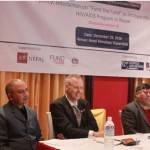 This week we submitted written evidence to the Culture, Media and Sport (CMS) Committee. This is the Parliamentary Select Committee that scrutinises the work of the Government Department (DCMS) that has recently launched an inquiry into ‘What the industry and Government can do to ensure British film and high-end television adapt for the future’. The area they have chosen to look at is a broad one, but the evidence we have submitted directly addresses two specific subsidiary questions: First, what should be prioritised to ensure a strong skills pipeline and retention in the film and high-end television industry? And second, what needs to change to ensure the industry is supporting inclusivity and sustainability?
This week we submitted written evidence to the Culture, Media and Sport (CMS) Committee. This is the Parliamentary Select Committee that scrutinises the work of the Government Department (DCMS) that has recently launched an inquiry into ‘What the industry and Government can do to ensure British film and high-end television adapt for the future’. The area they have chosen to look at is a broad one, but the evidence we have submitted directly addresses two specific subsidiary questions: First, what should be prioritised to ensure a strong skills pipeline and retention in the film and high-end television industry? And second, what needs to change to ensure the industry is supporting inclusivity and sustainability?
These questions relate directly to the research that we do here at BU in the Faculty of Media and Communication into the nature of work in the media industries: project-based and heavily dependent on a largely freelance arms-length workforce. Its prevalent employment model, the ‘bulimic’ (feast-or-famine) flow of work and its short-term but highly intensive character present many challenges, both to the individual and the employer. Work in TV often involves poor hiring practices, it militates against inclusivity and sustainability and can involve high levels of stress that creates a culture susceptible to bullying and harassment.
Depressingly – and as if on cue – just as we were marshalling our evidence for the CMS Committee, the story broke of yet another high-profile example of the sort of bad behaviour that often goes unchecked in this kind of work environment. Our piece in The Conversation published today frames the Russell Brand case in the context of the underlying – systemic – problems that we want to help the CMS Committee to understand.
Read our article in full: Russell Brand allegations are leading to renewed scrutiny of the endemic bullying and harassment in the TV industry. The Conversation, September 21, 2023
 UK Government policy week on the Blog: R&D People and Culture Strategy
UK Government policy week on the Blog: R&D People and Culture Strategy Promoting evidence-based policy-making in Nepal
Promoting evidence-based policy-making in Nepal










 New Nepal scoping review on maternal & neonatal health
New Nepal scoping review on maternal & neonatal health Fourth INRC Symposium: From Clinical Applications to Neuro-Inspired Computation
Fourth INRC Symposium: From Clinical Applications to Neuro-Inspired Computation Writing policy briefs
Writing policy briefs Upholding Excellence: The Concordat to Support Research Integrity
Upholding Excellence: The Concordat to Support Research Integrity ECR Funding Open Call: Research Culture & Community Grant – Application Deadline Friday 12 December
ECR Funding Open Call: Research Culture & Community Grant – Application Deadline Friday 12 December MSCA Postdoctoral Fellowships 2025 Call
MSCA Postdoctoral Fellowships 2025 Call ERC Advanced Grant 2025 Webinar
ERC Advanced Grant 2025 Webinar Horizon Europe Work Programme 2025 Published
Horizon Europe Work Programme 2025 Published Horizon Europe 2025 Work Programme pre-Published
Horizon Europe 2025 Work Programme pre-Published Update on UKRO services
Update on UKRO services European research project exploring use of ‘virtual twins’ to better manage metabolic associated fatty liver disease
European research project exploring use of ‘virtual twins’ to better manage metabolic associated fatty liver disease